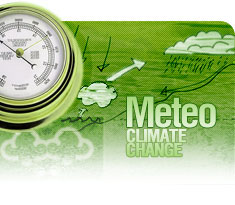Recent legislative action to curtail the power of the gas and coal industry are a glimmer of progress but more needs to be done
It has been a tumultuous year for the climate in Australia: from record-breaking weather events to a climate surprise in the election, a new target and a global energy crisis, this year has seen its fair share of change.
In February, the east-coast town of Lismore and the northern rivers region in New South Wales were hit by the worst flooding in Australia's modern history - the first of what would be a year of terrible floods, against the backdrop of a record third La Niña. Australia's climate impacts are worsening, according to the latest report from the Bureau of Meteorology and CSIRO. Many of those being hit by floods now were three years ago battling raging bushfires and drought.
The Morrison government's response was weak, with its March budget delivering little in terms of action.
The beginning of the year also saw the Great Barrier Reef suffer its sixth major bleaching event, and our coral reef scientists have recently flagged the prospects of a seventh.
Australians are feeling the heat of climate change, and in May they voted accordingly, delivering a win to Anthony Albanese's Labor party, which saw voters switching away from the Coalition, but to the independents and the Greens, rather than Labor. The ABC's Vote Compass showed the biggest issue for voters, more than the economy or the pandemic, was climate change, surprising many. This has since been confirmed by other research.
Before the election, the Coalition government had refused to increase its 2030 target, and had promised a "net zero" target by 2050, but our analysis showed it didn't have a plan to get us there. It was also backing a raft of new fossil fuel projects, many of them gas. The veracity of our offsets system was being called out by the person who helped designed the system, labelling some elements a "fraud".
So how much has changed since May?
In June the new government submitted a more ambitious 43% reduction by 2030 climate target to the UN, but it's still not 1.5C compatible. While the new target is a significant improvement, it's still more consistent with at least 2C of warming. Yet the environment minister, Chris Bowen, made a plea at COP27: "If we're not trying to keep to 1.5C then what are we here for?" A great question, and one the government must ponder deeply. Because he can't very well argue for others to commit to 1.5C if we're not doing it ourselves.
Australia needs to be ready to step up at the UN secretary general's climate ambition summit next September, with a 1.5C-aligned 2030 target, which should be well north of a 60% reduction below 2005 levels.
The net zero promise remains, but there are still few new plans to get there.
For the fossil fuel industry, it's still business as usual under the new government, which in August opened up 46,000 sq km to new oil and gas exploration. Approval after approval is going through for a maze of new gas projects, from the Scarborough and Browse projects off Western Australia to proposals to subsidise the Beetaloo basin in the Northern Territory.
In 2022 the world experienced a global energy crisis caused by Russia's illegal invasion of Ukraine, and the gas industry has seen this as a massive opportunity for expansion. Governments scrambling to replace Russian gas have overreached.
Within Australia, the gas industry has run rampant with excessive windfall profits while calling for massive expansion development and increased LNG exports. The government has tried to contain the damage being caused by increased eastern Australian electricity costs linked to insufficient availability of gas, leaving the domestic gas market exposed to the highly elevated prices of the international market.
The latter half of this year has seen states starting to get out of coal power, setting phase-out goals around 2035-2037. While this is an advance, it's still relatively far from the power sector coal exit needed by 2030 across the OECD to be aligned with the Paris Agreement's 1.5C limit. The IEA's net zero coal report carried a similar and more stark message.
There have been some other glimmers of hope in terms of stopping coal mining, with the recent court win against Clive Palmer's Waratah coalmine, part of the Galilee basin. The court found that the 1.58 gigatonnes of carbon emissions that will come from its development globally pose unacceptable risks.
The federal government is starting to move on reforming the primary tool it wants to use to curb industry emissions (including oil, coal and gas), the so-called safeguard mechanism, but it seems poised to continue allowing companies to offset their emissions at scale.
If this happens, there's a serious risk the whole scheme will be viewed simply as a licensing system for increased fossil fuel production rather than one that actually results in real emission reductions. Some have labelled this as "state-sanctioned greenwashing."
Australia has a terrible, 30-year history of claiming to meet its targets through dodgy accounting and, more recently, through offsets, but this cannot continue. The risk now is that if the government sticks to its apparent commitment to continue to use offsets, the country will find itself at the next federal election with industry sector emissions barely reduced at all, or worse, facing increased emissions from new fossil fuel projects.
In late November Unesco's world heritage committee published the results of its mission to the Great Barrier Reef, recommending, yet again, that the reef be listed as endangered due to climate change. It received a surprisingly defensive reaction from the Albanese government, arguing against such a listing, rather than using this warning to double down on the need to actually reduce emissions fast enough to get on to a 1.5C pathway.
Perhaps the last big climate moment this year was the government's first annual climate statement, but as many pointed out, fossil fuels didn't rate a single mention.
The government also released its greenhouse gas projections, showing most of the effort will come from the rollout of renewables in the power sector and very little else, and it signed an agreement with states on fast-tracking storage for renewables. This is a positive development and absolutely critical to decarbonising Australia and is backed by serious resources. However it is not enough.
Right in the last week before the Australian silly season fully kicked off the Albanese government took legislative action to curtail the power of the gas and coal industry putting in place price caps and a reasonable price test, which led to outcries of "Armageddon" and Soviet-style command and control from the gas industry, and declarations of the "end of gas" from the Greens in the federal parliament. The outcry from the gas industry and its analysts and regular press stenographic services was hyperbolic in the extreme - and seen as such by most. As for the end of gas, there is some way to go but several things done by the government support this. The move not to allow gas into the capacity market system and instead focus on batteries and other storage, the announcement of massive battery plans, and the Greens' mediated deal to support households to get out of gas all support a faster exit from the power sector and domestic use.
Looking ahead to 2023, if Australia is going to be successful in getting its economy established on a 1.5C aligned pathway, it will need to focus on policy that ensures real emission reduction.
And that means really taking its foot off the gas. Reductions in the industry, mining and mineral process are urgently needed, together with a national plan to replace fossil gas in these sectors with electrification, efficiency and green hydrogen.
And we will also need to reduce emissions from the LNG industry and coal which are set to grow significantly by 2030, and if not curtailed could swamp gains made elsewhere.



 Română
Română English
English


